Revolutionary Portable Device Performs Rapid MRI-Based Stroke Imaging at Patient's Bedside
|
By MedImaging International staff writers Posted on 07 Feb 2025 |
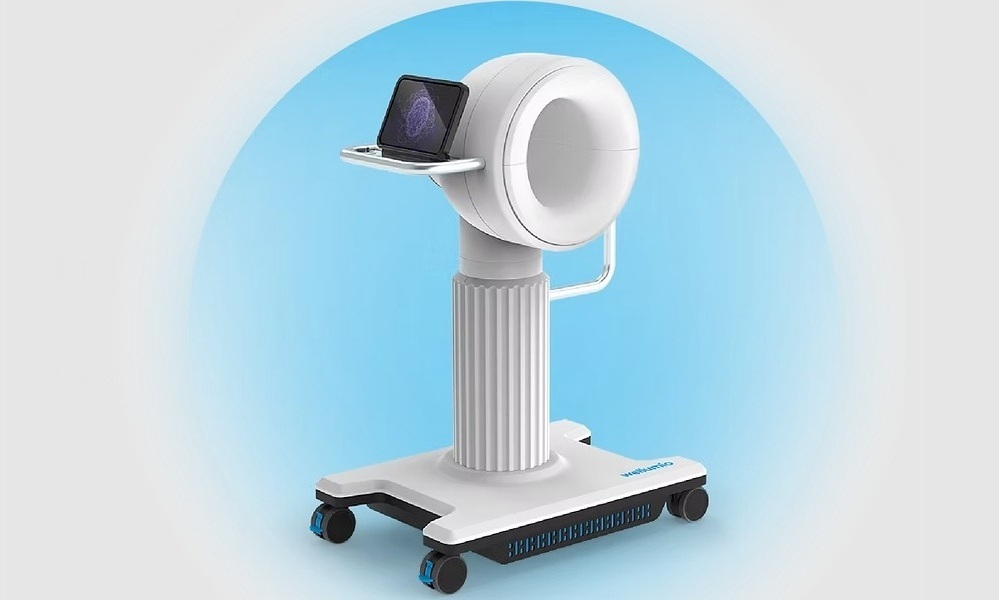
Stroke has a lifetime risk of 1 in 4, and every 2 seconds, someone in the world experiences a stroke. The number of stroke-related deaths is expected to rise by 50% over the next three decades. The effectiveness of stroke reperfusion therapy declines quickly over time. Every minute without treatment results in the loss of millions of neurons—neurons that do not regenerate. In response to this, a revolutionary portable device is making magnetic resonance technology more accessible, enabling quicker diagnosis and treatment for stroke patients.
Wellumio’s (Wellington, New Zealand) Axana 0.1T portable magnetic resonance imaging (MRI) system offers the unique capability to perform rapid MRI-based stroke imaging directly at the patient’s bedside, marking a significant advancement in the speed of acute stroke detection in emergency room settings. Unlike traditional MRI systems, which rely on large superconducting magnets and coils to create magnetic gradients for imaging, Axana’s innovative technology uses Pulsed Gradient Free Mapping (PGFM). This cutting-edge technique eliminates the need for bulky components and allows the device to track the magnetic resonance properties of brain tissue, identifying clinically recognized stroke biomarkers, such as molecular diffusion, in a compact, portable form. Through this design, the Axana device can quickly assess stroke biomarkers, including molecular diffusion detected by Diffusion Weighted Imaging (DWI), right at the bedside.
The portability and simplicity of Axana make it well-suited for bedside use, allowing for rapid detection of stroke-related damage and providing essential insights into the severity and extent of the stroke. This quick information enables the prioritization of advanced imaging techniques and guides critical treatment decisions. Designed to integrate seamlessly into emergency and acute care workflows, Axana assists clinicians by providing timely data for important decision-making points. Wellumio is currently conducting a two-part, dual-center, feasibility and observational study on the Axana 0.1T brain scanning device in subacute stroke patients. The study’s main goal is to evaluate the safety and feasibility of obtaining timely scans without technical issues, comparing results from both healthy controls and stroke patients.
"We've designed a novel device that is highly portable and significantly faster than traditional MRIs, making it ideal for quick assessments in emergency situations," said Dr. Shieak Tzeng, CEO of Wellumio. "By delivering radial maps of the brain, Axana will potentially empower emergency physicians, neurologists, radiologists, and stroke care team members to rapidly detect strokes and guide critical treatment decisions during the crucial golden hour of care."
Related Links:
Wellumio
Latest MRI News
- New MRI Technique Reveals Hidden Heart Issues
- Shorter MRI Exam Effectively Detects Cancer in Dense Breasts
- MRI to Replace Painful Spinal Tap for Faster MS Diagnosis
- MRI Scans Can Identify Cardiovascular Disease Ten Years in Advance
- Simple Brain Scan Diagnoses Parkinson's Disease Years Before It Becomes Untreatable
- Cutting-Edge MRI Technology to Revolutionize Diagnosis of Common Heart Problem
- New MRI Technique Reveals True Heart Age to Prevent Attacks and Strokes
- AI Tool Predicts Relapse of Pediatric Brain Cancer from Brain MRI Scans
- AI Tool Tracks Effectiveness of Multiple Sclerosis Treatments Using Brain MRI Scans
- Ultra-Powerful MRI Scans Enable Life-Changing Surgery in Treatment-Resistant Epileptic Patients
- AI-Powered MRI Technology Improves Parkinson’s Diagnoses
- Biparametric MRI Combined with AI Enhances Detection of Clinically Significant Prostate Cancer
- First-Of-Its-Kind AI-Driven Brain Imaging Platform to Better Guide Stroke Treatment Options
- New Model Improves Comparison of MRIs Taken at Different Institutions
- Groundbreaking New Scanner Sees 'Previously Undetectable' Cancer Spread
- First-Of-Its-Kind Tool Analyzes MRI Scans to Measure Brain Aging
Channels
Radiography
view channel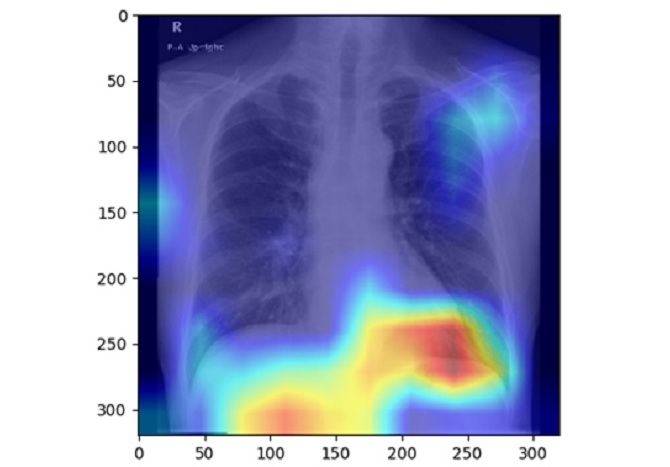
AI Detects Fatty Liver Disease from Chest X-Rays
Fatty liver disease, which results from excess fat accumulation in the liver, is believed to impact approximately one in four individuals globally. If not addressed in time, it can progress to severe conditions... Read more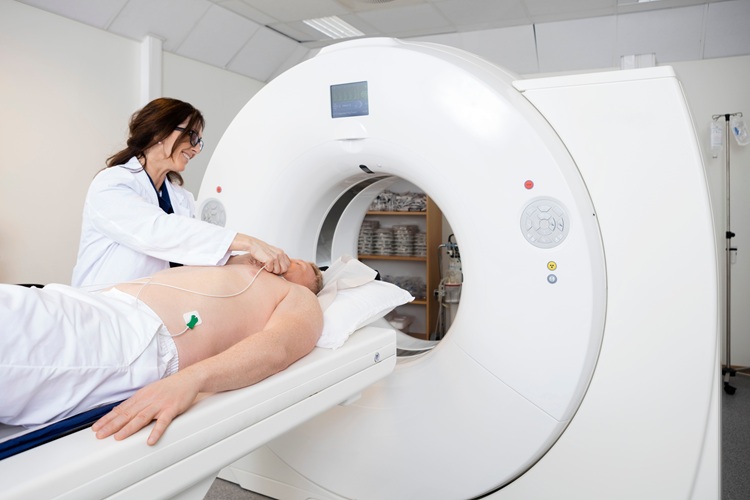
AI Detects Hidden Heart Disease in Existing CT Chest Scans
Coronary artery calcium (CAC) is a major indicator of cardiovascular risk, but its assessment typically requires a specialized “gated” CT scan that synchronizes with the heartbeat. In contrast, most chest... Read moreUltrasound
view channel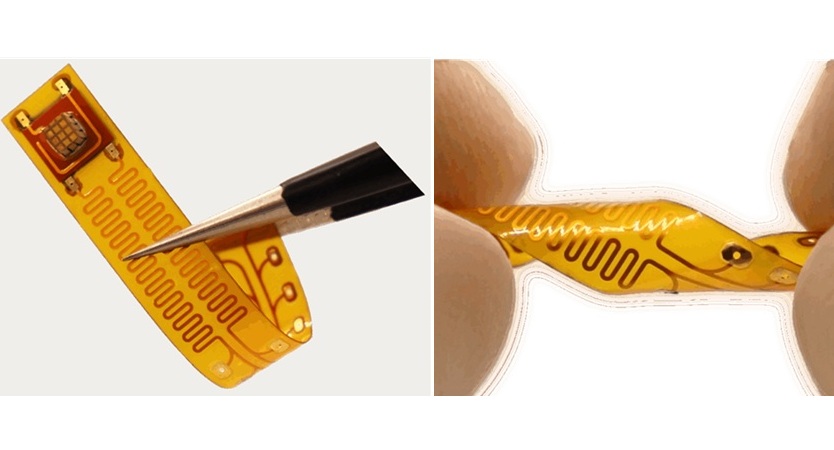
Wireless Chronic Pain Management Device to Reduce Need for Painkillers and Surgery
Chronic pain affects millions of people globally, often leading to long-term disability and dependence on opioid medications, which carry significant risks of side effects and addiction.... Read more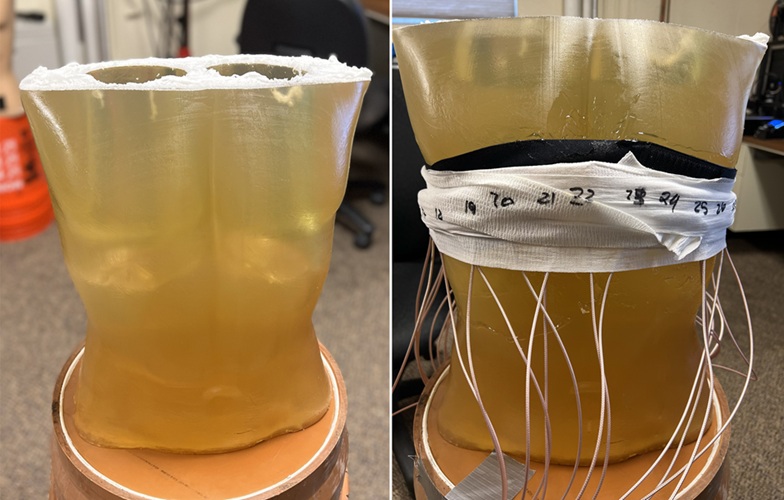
New Medical Ultrasound Imaging Technique Enables ICU Bedside Monitoring
Ultrasound computed tomography (USCT) presents a safer alternative to imaging techniques like X-ray computed tomography (commonly known as CT or “CAT” scans) because it does not produce ionizing radiation.... Read moreNuclear Medicine
view channel
Novel Bacteria-Specific PET Imaging Approach Detects Hard-To-Diagnose Lung Infections
Mycobacteroides abscessus is a rapidly growing mycobacteria that primarily affects immunocompromised patients and those with underlying lung diseases, such as cystic fibrosis or chronic obstructive pulmonary... Read more
New Imaging Approach Could Reduce Need for Biopsies to Monitor Prostate Cancer
Prostate cancer is the second leading cause of cancer-related death among men in the United States. However, the majority of older men diagnosed with prostate cancer have slow-growing, low-risk forms of... Read moreGeneral/Advanced Imaging
view channel
CT Colonography Beats Stool DNA Testing for Colon Cancer Screening
As colorectal cancer remains the second leading cause of cancer-related deaths worldwide, early detection through screening is vital to reduce advanced-stage treatments and associated costs.... Read more
First-Of-Its-Kind Wearable Device Offers Revolutionary Alternative to CT Scans
Currently, patients with conditions such as heart failure, pneumonia, or respiratory distress often require multiple imaging procedures that are intermittent, disruptive, and involve high levels of radiation.... Read more
AI-Based CT Scan Analysis Predicts Early-Stage Kidney Damage Due to Cancer Treatments
Radioligand therapy, a form of targeted nuclear medicine, has recently gained attention for its potential in treating specific types of tumors. However, one of the potential side effects of this therapy... Read moreImaging IT
view channel
New Google Cloud Medical Imaging Suite Makes Imaging Healthcare Data More Accessible
Medical imaging is a critical tool used to diagnose patients, and there are billions of medical images scanned globally each year. Imaging data accounts for about 90% of all healthcare data1 and, until... Read more
Global AI in Medical Diagnostics Market to Be Driven by Demand for Image Recognition in Radiology
The global artificial intelligence (AI) in medical diagnostics market is expanding with early disease detection being one of its key applications and image recognition becoming a compelling consumer proposition... Read moreIndustry News
view channel
GE HealthCare and NVIDIA Collaboration to Reimagine Diagnostic Imaging
GE HealthCare (Chicago, IL, USA) has entered into a collaboration with NVIDIA (Santa Clara, CA, USA), expanding the existing relationship between the two companies to focus on pioneering innovation in... Read more
Patient-Specific 3D-Printed Phantoms Transform CT Imaging
New research has highlighted how anatomically precise, patient-specific 3D-printed phantoms are proving to be scalable, cost-effective, and efficient tools in the development of new CT scan algorithms... Read more
Siemens and Sectra Collaborate on Enhancing Radiology Workflows
Siemens Healthineers (Forchheim, Germany) and Sectra (Linköping, Sweden) have entered into a collaboration aimed at enhancing radiologists' diagnostic capabilities and, in turn, improving patient care... Read more












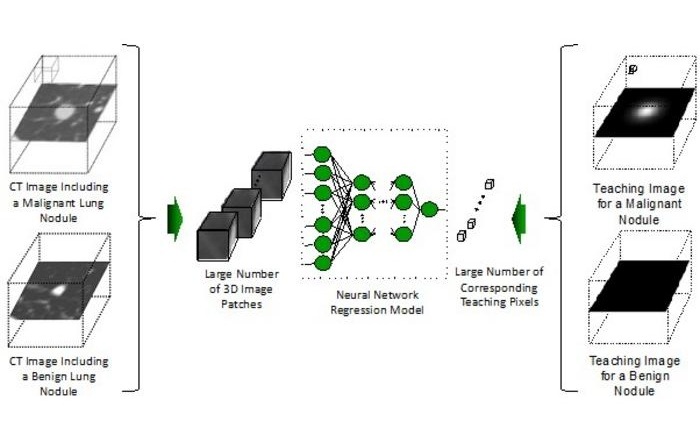
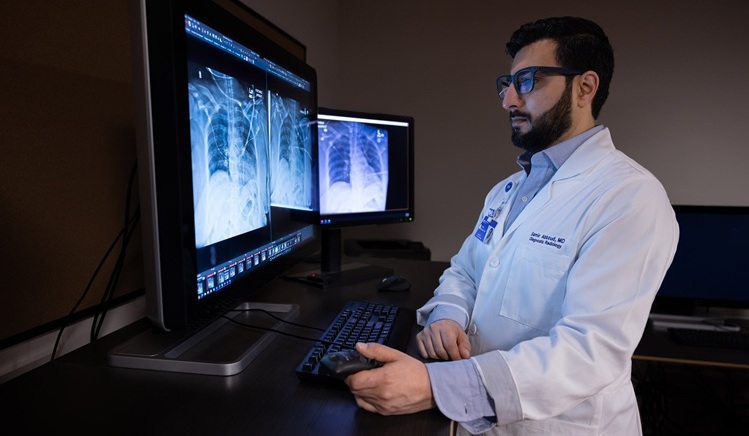

.jpeg)




